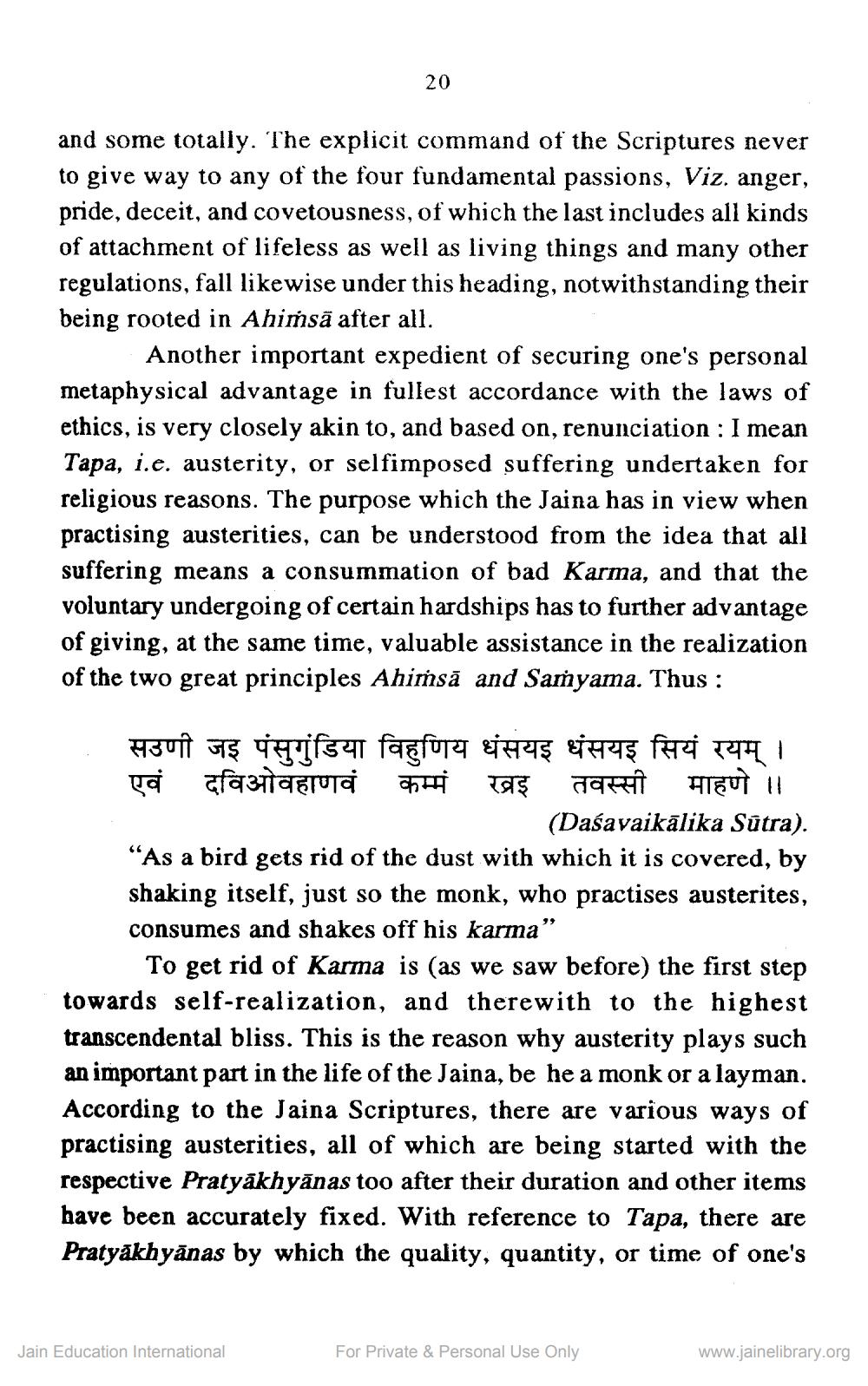________________
20
and some totally. The explicit command of the Scriptures never to give way to any of the four fundamental passions, Viz. anger, pride, deceit, and covetousness, of which the last includes all kinds of attachment of lifeless as well as living things and many other regulations, fall likewise under this heading, notwithstanding their being rooted in Ahimsă after all.
Another important expedient of securing one's personal metaphysical advantage in fullest accordance with the laws of ethics, is very closely akin to, and based on, renunciation : I mean Tapa, i.e. austerity, or selfimposed suffering undertaken for religious reasons. The purpose which the Jaina has in view when practising austerities, can be understood from the idea that all suffering means a consummation of bad Karma, and that the voluntary undergoing of certain hardships has to further advantage of giving, at the same time, valuable assistance in the realization of the two great principles Ahiṁsā and Samyama. Thus :
सउणी जइ पंसुगुंडिया विहुणिय धंसयइ धंसयइ सियं रयम् । एवं दविओवहाणवं कम्मं रखइ तवस्सी माहणे ।।
(Daśavaikālika Sūtra) “As a bird gets rid of the dust with which it is covered, by shaking itself, just so the monk, who practises austerites, consumes and shakes off his karma”
To get rid of Karma is (as we saw before) the first step towards self-realization, and therewith to the highest transcendental bliss. This is the reason why austerity plays such an important part in the life of the Jaina, be he a monk or a layman. According to the Jaina Scriptures, there are various ways of practising austerities, all of which are being started with the respective Pratyākhyānas too after their duration and other items have been accurately fixed. With reference to Tapa, there are Pratyakhyānas by which the quality, quantity, or time of one's
Jain Education International
For Private & Personal Use Only
www.jainelibrary.org




